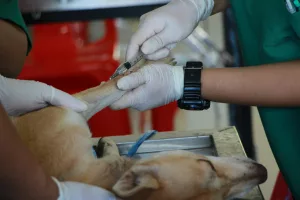When your little hamster starts its nightly serenade of squeaks and chirps, it can be both endearing and a bit puzzling. Understanding these nocturnal symphonies involves diving into the fascinating world of hamster behavior. These tiny creatures, with their own set of complex needs and instincts, often surprise us with their communication methods. Let’s delve deeper into why your hamster might be vocalizing at night and how to ensure their well-being. Hamsters are known for their adorable antics and tendency to be active during the night. If your hamster has been keeping you awake with its nocturnal squeaking, you may wonder what the reason behind this behavior is.
The Science of Hamster Behavior
Hamsters are crepuscular creatures, meaning they are most active during dawn and dusk. In the wild, this behavior helps them avoid predators and find food more easily. Pet hamsters retain this behavior, which can lead to them being active at night and exhibiting behaviors such as squeaking.
Understanding Crepuscular Nature
Being crepuscular, hamsters are naturally wired to be active when the world is a bit quieter. This behavior is deeply ingrained and serves as a survival mechanism. In their natural habitats, the cover of twilight provides protection from daytime predators, while the cooler temperatures make foraging more comfortable. As pet owners, understanding this natural rhythm can help us better accommodate their needs and reduce disturbances.
- Professional Insight: Many hamster owners notice that their pets are most active during these twilight hours, often leading to increased vocalizations. This is their prime time, akin to our morning coffee ritual.
Possible Reasons for Nocturnal Squeaking
There are several reasons why your hamster may be squeaking during the night. It could be due to hunger, thirst, discomfort, or even a need for social interaction. Hamsters are social animals and may squeak to communicate with other hamsters or with their owners.
Hunger and Thirst
If your hamster’s squeaking is accompanied by increased activity around its food and water sources, it may be trying to tell you that it is hungry or thirsty. Ensure that your hamster has access to fresh food and water at all times to prevent this behavior.
- Practical Tip: Use a heavy, tip-proof dish for food and a stable water bottle to ensure your hamster always has access to nourishment.
- Case Study: One hamster owner noticed that refilling the water bottle more frequently reduced nocturnal squeaking, highlighting the importance of ensuring a consistent water supply.
Discomfort or Pain
Hamsters may squeak if they are experiencing discomfort or pain. This could be due to an injury, illness, or even an uncomfortable living environment. If your hamster’s squeaking is persistent and accompanied by other symptoms such as lethargy or decreased appetite, consult a veterinarian.
- Common Mistake: Overlooking subtle signs of illness. Regularly observe your hamster for any changes in behavior or appearance.
- Example: A hamster that suddenly starts squeaking and limping may have an injury that requires immediate veterinary attention.
Loneliness and Boredom
Hamsters are social animals and thrive on interaction with their owners or other hamsters. If your hamster is squeaking at night, it may be seeking attention and companionship. Provide your hamster with toys, tunnels, and other enriching activities to keep it mentally stimulated.
- Step-by-Step Guidance:
- Rotate Toys: Keep a variety of toys and switch them out regularly to maintain your hamster’s interest.
- Create a Play Area: Use a playpen or a safe, enclosed space for supervised playtime.
- Interactive Time: Spend at least 20-30 minutes each evening engaging with your hamster.
- Real Example: An owner noticed a reduction in squeaking after introducing a new exercise wheel and additional tunnels, providing more avenues for exploration and activity.
Creating a Comfortable Environment
The living environment plays a crucial role in your hamster’s overall well-being and behavior. A well-considered habitat can significantly reduce stress and the likelihood of nocturnal disturbances.
Ideal Cage Setup
- Size Matters: Ensure the cage is spacious enough for your hamster to move freely. A minimum of 360 square inches of floor space is recommended for Syrian hamsters.
- Bedding and Substrate: Use soft, absorbent bedding to create a comfortable and safe environment. Avoid cedar or pine shavings, which can be harmful.
- Hideouts and Nesting: Provide hiding spots and nesting materials to mimic their natural habitat and offer a sense of security.
Environmental Factors
- Noise Levels: Place the cage in a quiet area away from loud noises and disturbances that could alarm your hamster.
- Temperature and Lighting: Maintain a stable temperature and natural light cycle to support your hamster’s crepuscular nature.
Dealing with Nocturnal Squeaking
To address your hamster’s nocturnal squeaking, first ensure that its basic needs such as food, water, and a comfortable living environment are met. Spend quality time interacting with your hamster during the evening to help alleviate loneliness and boredom.
Behavioral Training and Adjustment
- Routine Establishment: Establish a consistent evening routine that includes feeding, playtime, and interaction to help your hamster feel secure.
- Positive Reinforcement: Reward quiet behavior with treats or extra playtime to encourage a calmer demeanor.
When to Seek Veterinary Advice
If the squeaking persists or is accompanied by other concerning symptoms, seek advice from a veterinarian to rule out any underlying health issues. Regular check-ups can catch potential problems early and ensure your hamster remains healthy and happy.
- Veterinary Insight: Regular health screenings can preemptively address issues like dental problems, which might cause discomfort and lead to squeaking.
Understanding Your Hamster’s Communication
Hamsters use a variety of sounds to communicate, and understanding these can help you better care for your pet. Squeaking isn’t the only sound they make; they might chirp, purr, or even hiss depending on their mood and needs.
Decoding the Sounds
- Chirping: Often a sound of contentment or curiosity, similar to a cat’s purr.
- Hissing or Growling: Indicates fear or aggression, often a sign to give your hamster some space.
- Squealing: Generally a sign of distress, often due to fear or discomfort.
- Tip: Spend time observing your hamster’s behavior when it makes different sounds. This will help you understand what each sound typically means for your pet.
Enhancing Mental Stimulation
Mental stimulation is as important as physical exercise for hamsters. Without adequate mental challenges, they can become bored, which might increase vocalizations.
Ideas for Mental Stimulation
- Puzzle Feeders: Encourage your hamster to work for its food by hiding treats in puzzle feeders.
- Obstacle Courses: Create mini obstacle courses using cardboard tubes and small boxes.
- New Scents: Introduce safe new scents to your hamster’s environment to pique their curiosity.
- Example: After a hamster owner introduced a simple puzzle feeder, they noticed a significant decrease in night-time squeaking as the hamster engaged more with its environment.
Avoiding Common Mistakes
Caring for a hamster involves avoiding some common pitfalls that might lead to increased stress or health issues.
Common Pitfalls
- Overcrowding the Cage: Too many toys or accessories can make the cage feel cramped.
- Inconsistent Routines: Irregular feeding or play times can create anxiety.
- Ignoring Body Language: Subtle signs of stress or illness can be missed if not closely observed.
- Practical Advice: Regularly assess your hamster’s environment and routine to ensure they meet your pet’s evolving needs.
Building a Strong Bond
Forming a strong bond with your hamster can help reduce stress and anxiety, leading to less squeaking and a happier pet.
Bonding Techniques
- Hand-Feeding: Use treats to encourage your hamster to approach you, building trust over time.
- Gentle Handling: Always handle your hamster gently and confidently to avoid causing stress.
- Recognizing Cues: Learn to recognize when your hamster wants attention or when it prefers to be left alone.
- Case Study: A hamster owner who regularly engaged in hand-feeding noticed their pet became more relaxed and vocalized less at night.
Practical Tips for a Quiet Night
- Consistent Evening Routine: Establish a routine that includes quiet time before bed to help your hamster wind down.
- Comfortable Bedding: Ensure the bedding is not only safe but also comfortable enough to encourage restful sleep.
- Sound-Proofing: If your hamster’s cage is near your sleeping area, consider sound-proofing options to minimize disturbances.
With these insights and strategies, you can create an environment that supports your hamster’s natural behaviors while minimizing disruptions. Remember, every hamster is unique, and their vocalizations are a part of their charm and character. Embrace this communication as you continue to learn and grow together with your furry friend.



